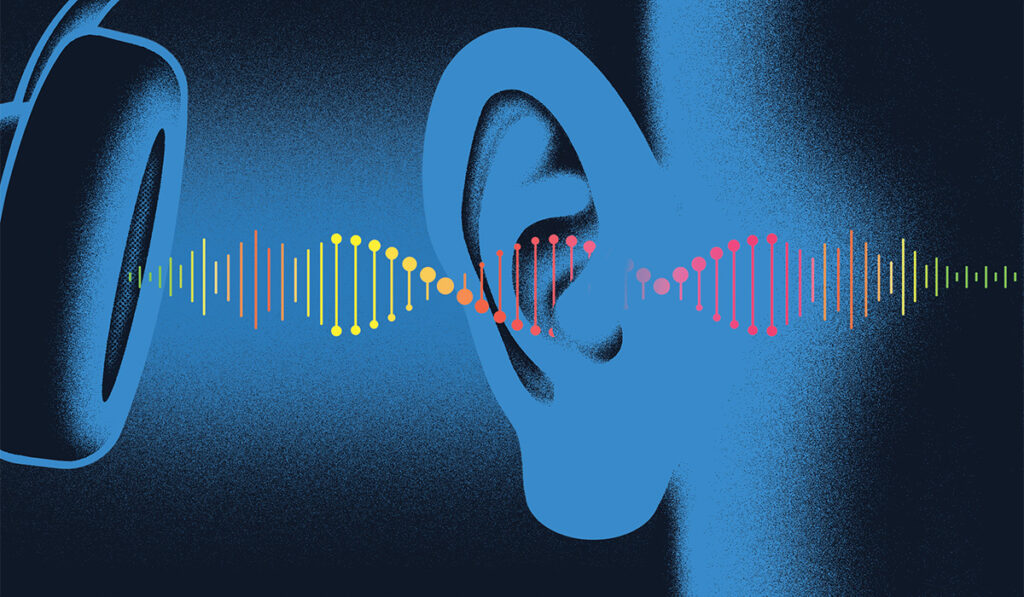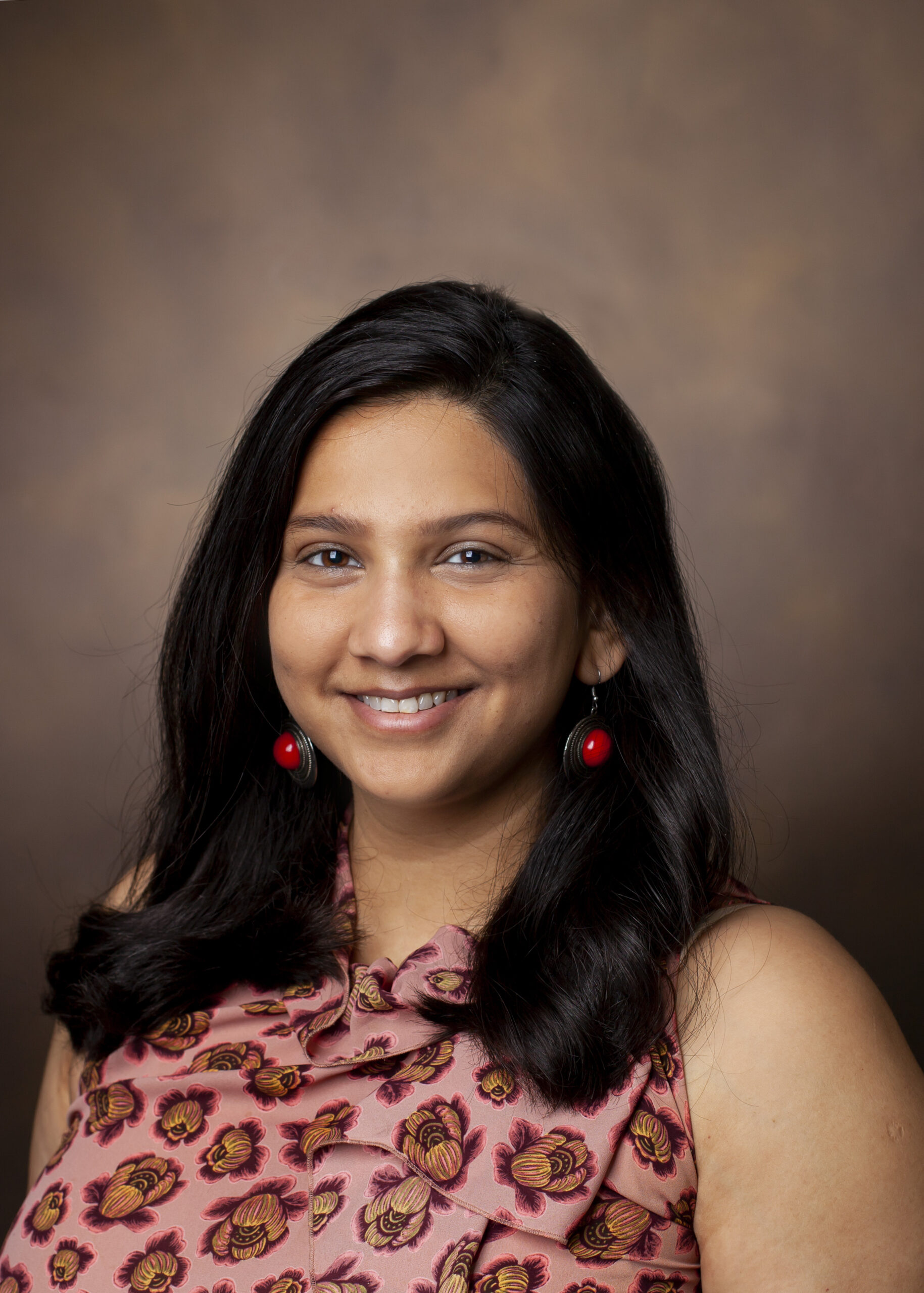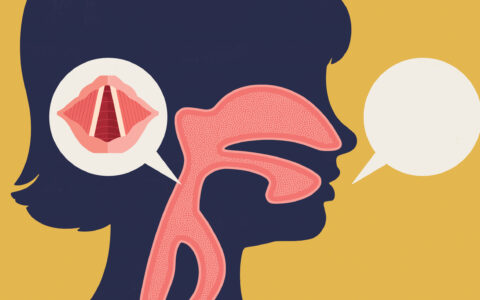New research from Vanderbilt University Medical Center’s Music Cognition Lab explores whether musicality traits may be risk-resilience markers for hearing loss later in life, work that could pave the way for a deeper dive into how musicality may influence a variety of health factors.
“Everyone is fundamentally musical, even if they don’t practice music or have formal training or ‘talent.’”
Srishti Nayak, Ph.D., research faculty in the Department of Otolaryngology-Head and Neck Surgery, describes the concept of musicality as encompassing a person’s musical aptitude, training, engagement levels, and predispositions – traits that are highly variable across individuals.
“When we say ‘musicality’ a lot of people assume we mean musicians or highly musically-inclined folks. But everyone is fundamentally musical, even if they don’t practice music or have formal training or ‘talent.’” Nayak said.
The new project will consider how a range of musicality factors – such as people’s ability to hear differences between rhythms or pitches, their music listening habits or instrument playing behaviors – might connect to their risk for age-related hearing loss. More deeply, Nayak is interested in the genetic mechanisms that underlie these associations.
Methods Across Fields
Positioned in the heart of Nashville on Music Row, the Vanderbilt Music Cognition Lab is at the forefront of the research. Nayak, who joined the faculty in 2022, has received a three-year early career research award from the National Institute on Deafness and Other Communication Disorders to investigate further.
“How do individual differences in musicality map onto differences in hearing health and abilities in older adults?”
Earlier, in a sweeping, cross-disciplinary review of existing literature, Nayak and team found musical aptitude to be positively correlated with speech perception and a host of other traits related to human communication and language. With the lab’s co-director Reyna Gordon, Ph.D., Nayak led development of a specific testable theory to explain connections between people’s musicality, auditory mechanisms (such as cochlear structures or brain functions), and speech-language and hearing skills.
“We previously highlighted the importance of musicality for a range of communication abilities. Now, I’m interested in zooming into hearing and aging processes. How do individual differences in musicality – broadly defined – map onto differences in hearing health and abilities in older adults?” Nayak explained.
Nayak is bringing together approaches from public health, music science, cognitive neuroscience, communication sciences and disorders, and human genetics to tackle these questions at a large scale. Additional collaborators include department colleagues Terrin Tamati, Ph.D. and Aaron Moberly, M.D.; Jennifer Below, Ph.D. of Vanderbilt’s Division of Genetic Medicine; and Jonathan Peelle, Ph.D. of the Center for Cognitive and Brain Health at Northeastern University.
Focus on Genetics
The project is called MyHearinG, which stands for “musicality, hearing and genetics.” The goal is to map associations between musical aptitude or engagement and hearing outcomes in individuals, then to overlay these associations onto what is already known about the genetic architecture of musicality and hearing loss. The expect to find novel insights.
“Could certain musical impairments be a risk factor for age-related hearing loss, as they are for other developmental disorders?” Nayak asks.
To study this, the researchers are analyzing data from enormous EHRs and biobanks, including the NIH’s All of Us and UK Biobank. They are supplementing this with more in-depth studies assessing musicality, cognition, and auditory functioning in a smaller sample of older adults.
Tools For Prevention
Connecting age-related changes to individual musicality factors may highlight possible mechanisms at work. Such findings would advance the research highlighted by the manuscript review, in which most research centered around children or young adults.
As a developmental psychologist who has worked with infants, children, and adults, Nayak envisions longitudinal studies focusing on the whole lifespan. By layering on genetic studies, Nayak says musicality might even be considered a biomarker to support precision medicine more broadly. This is one focus of the international Musicality Genomics Consortium that Nayak is involved with. She sees an opportunity to improve disease-risk detection and better understand “dose-response” relationships between musicality and hearing health.
“Say we find that different degrees of music engagement or music aptitude levels early in life are related with risk or resilience for specific hearing disorders later, could musicality be used as an early screening tool to assess who is most at risk? Further, if we find a genetic component in these relationships, could we develop precision medicine approaches to help those most affected?”
“If musicality became a part of public health more broadly, if we knew something about it during preventative care, we could use it in far-reaching ways within health research,” Nayak added.





